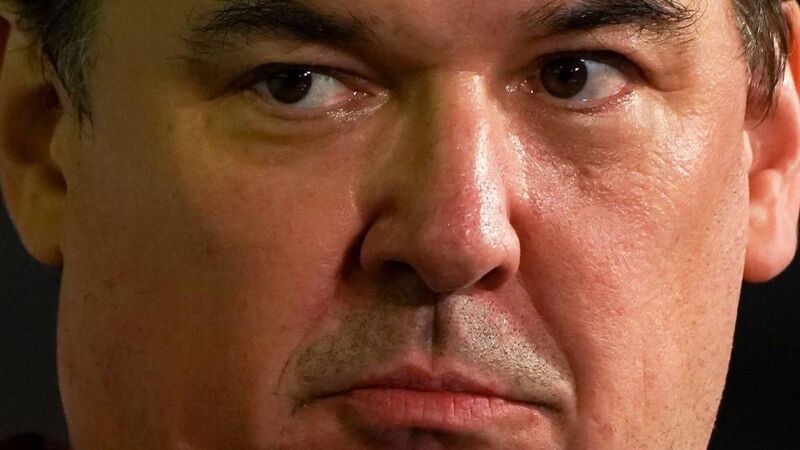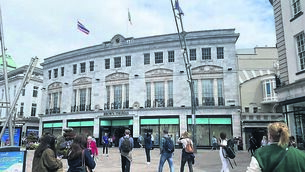Fr Ted co-creator Graham has alienated himself in gender wars

Graham Linehan, the co-creator of Father Ted, has taken a controversial stance as an anti-transgender activist.
This teacher undoubtedly knows what she’s talking about, being at the coalface dealing with adolescents every day.
There are a couple of pupils in her school who are transitioning. I don’t know any transgender people, but that is no excuse for denying their reality. I took the teacher’s criticism on the chin.
And I’ve been listening to co-creator, Graham Linehan, on Irish radio. He also wrote , and other comedies. He has been promoting his memoir, , and talking about his controversial stance as an anti-transgender activist. It has, he claims, destroyed his career and wrecked his marriage.
The research, carried out by Amárach, found that a similar proportion of people do not believe children should be offered gender-affirming care, such as counselling and hormone replacement treatment.
The survey found that 49% of people believe teens who wish to transition should not have access to puberty blockers, while 27% do and 24% don’t know or prefer not to say. It seems there’s a lot of uncertainty – and no doubt ignorance – about this contentious issue.
I used to know him in Dublin years ago when he was a sharp and funny film critic for magazine.
A tall, lumbering guy with jet black hair, he was quite gentle, self-deprecating and good company. Now, he has put himself in a position that has attracted much hate on social media.
This from a guy who never liked “religious people having control over my life” and co-wrote Father Ted as a result. But if that was meant to be a stab at the church, it was actually very benign. Even my parents (who were good Catholics) smiled at the clever and funny Craggy Island sitcom that sent up priests and piety.
On Newstalk last week, Graham said Fr Ted was never meant to be overly satirical or hard-hitting. His co-writer, Arthur Matthews had relatives that were priests, whom he liked. There were priests in the school Graham attended and he had no problems with them. In other words, the two writers weren’t on a mission to tear down the church if it meant hurting religious people that they respected.
Being entrenched makes it difficult to tease out the issues at stake. But he was in emollient mode on Newstalk, unlike on RTÉ Radio’s recently when he admonished the interviewer for not covering the transgender story as a journalist and instead, leaving it up to him, a comedy writer.
Yes, Graham was combative in that interview, very much on the defensive.
On Newstalk, he said the “charge of transphobia or bigotry... (is) enough just to get anyone to pull the plug”. He was talking about a big blow to his career.
He got a phone call one day asking him if he’d like to direct a series (which is on TV now) called with Steve Martin and Martin Short. Thrilled to be involved in a project starring Martin, whom Graham “worshipped”, it was a rare bit of good news for the writer and his wife.
But very soon after the call, Graham was told someone else had stepped in. He believes he lost a potentially important gig, due no doubt to being described as “a bigot” as soon as his name was attached to the project.
Transgenderism is a highly contentious issue. But for those of us who think it’s just the latest topic in the culture wars, we should realise that transgender people have been documented in many indigenous, Western and Eastern cultures and societies from antiquity until the present day, according to the American Psychological Association.
There’s no single explanation for why some people are transgender. Many experts believe biological factors such as genetic influences and prenatal hormone levels, early experiences, and experiences later in adolescence or adulthood may all contribute to the development of transgender identities.
Graham, through “concern” for women and children, has cornered himself into an intransigent position. He’s not the only one, given the ignorance of some of us.







 App?
App?




